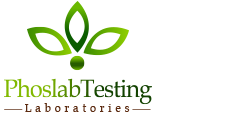Emerald Coast Utilities Authority (ECUA) is a Florida-based sanitation and wastewater management company. The organization made local news after it reported that compost it distributed contained traces of the salmonella bacteria. The Florida Department of Environmental Protection was notified, prompting a statewide alert to entities that have received the compost.
ECUA Issues Update on Salmonella
ECUA has now issued an update stating that the compost does NOT contain higher-than-normal traces of salmonella as previously reported. The organization is now working with customers that may have been affected by the false notification.
Salmonella and other dangerous bacteria testing is done periodically. According to Florida environmental agency spokesperson Brandy Smith, the latest monthly compost supply tested positive for elevated levels of the bacteria.
According to ECUA spokesperson Nathalie Bowers, about 160 customers received the compost, with provisions ranging from a few 40-pound bags to “large bulk amounts.” ECUA had alerted customers and also offered to send workers to remove the compost. Some customers took ECUA up on the offer; others did not.
Bowers assured the general public that it has nothing to fear. Salmonella only poses significant health risks if ingested. The bacteria cannot be transmitted though air or via skin contact.
The compost ECUA distributes is composed of a mixture of organic recycled matter, biosolids, and nutrient-dense additives. The same compost has been in distribution and use in Florida since 2016.
Even with testing results now confirmed as a false-positive, users should still exercise common sense hygiene. Anyone working with any form of compost should thoroughly wash their hands afterwards. Pets and small children should also maintain a safe distance from fresh compost.
ECUA has since resumed normal operations.
Moving Forward
Many lessons can be learned from this situation. ECUA did the right thing by immediately contacting Florida health agencies and sending out alerts to individuals who could have been affected. However, the false-positive result raises questions about the testing procedures that were used. ECUA needs to answer the following questions:
- Which testing entity was used? Is the entity certified and approved by the EPA and state officials?
- Does the testing company have an established standard operating procedure?
- What testing methods were used?
- If the inaccurate result was due to human error, what steps can be taken to ensure a similar mistake does not happen in the future?
The false-positive or possible lab error was preventable and has caused inconvenience and a needless scare for customers and the general public.
Accurate and Reliable Testing at Phoslab
At Phoslab Environmental Laboratories, we use state-of-the-art equipment to perform garden soil testing that gives our customers extremely accurate and reliable results. We have been performing agricultural testing for over two decades and are among one of the most trusted labs in Florida. Whether you are a residential or commercial gardener/landscaper, send us a sample today to determine soil purity level.
Additional resources:
- North Escambia, ECUA: Test Showing Salmonella in Compost was Incorrect, http://www.northescambia.com/2018/04/ecua-test-showing-salmonella-in-compost-was-incorrect
- Pensacola News Journal, Second Round of Testing Shows Compost Did not Contain Salmonella Bacteria, https://www.pnj.com/story/news/2018/04/11/ecua-compost-has-possible-salmonella-contamination-state-environmental-department-investigating/503646002/
